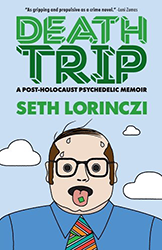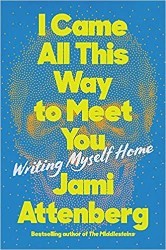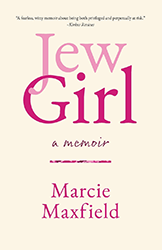Carla Stockton’s lifelong quest to express herself as a writer, actor, teacher, and theatrical producer against almost insurmountable odds is the subject of this brave memoir.
Too Much of Nothing is a book of lamentations about growing up in a family with a dearth of love and encouragement. In chapters structured as linked stories, the author processes suffering and bad choices and gains some late-in-life hope and understanding. Stockton chose her title from lyrics by Bob Dylan: “In the days of long confessions we cannot mock a soul / When there’s too much of nothin’, no one has control.”
The author’s mother, who escaped Europe just before Hitler closed the gates, is portrayed as a guilt-ridden survivor who gave up the opportunity to pursue her dream of becoming a physician and cellist for the safety of an unhappy intermarriage, resulting in seven children. Stockton, the eldest, experiences much of the psychological trauma often attributed to children of Holocaust survivors. In the introduction, she writes,“I understand the sense of longing, the unerasable fear, the embedded nostalgia that comes with inherited PTSD.” Although bright and talented, she nevertheless struggles with guilt, self-destructive behavior, and low self-esteem. Disliking her large body and angry about her overwhelming caretaking duties at home, Stockton is a gifted but rebellious, unhappy teenager with few friends who nevertheless manages to attend Columbia University.
At heart, she is at heart a Shakespeare-loving romantic. However, she jumps at the opportunity to marry the first good-looking man who shows interest in her, a Polish Catholic engineering graduate student. Her dream of becoming a writer is indefinitely postponed in deference to her husband’s career and their three young children. Scenes from Ibsen’s A Doll’s House are sprinkled throughout the book; Stockton identifies with Nora, the main character, trapped in her oppressive marriage. When finances become tight, she takes on a variety of jobs, such as substitute teaching. Her mentor Stu, a wonderful ally, dies in a horrible accident, leaving her unprotected in a hostile work environment.
A native of upstate New York, Stockton reluctantly moves to Phoenix for her husband’s new job. She even enrolls her children in a Jewish day school and becomes active in the community. Unfortunately, it is still a miserable few years before she returns East to Connecticut. She concludes, “… I am my mother’s daughter. I am, as I have always been, a Jew in a world that doesn’t really want us.”
At times the book suffers from an excess of exposition and repetition. Nevertheless, each chapter contains compelling scenes. Stockton’s painful divorce and ultimate liberation come only after decades of delusion that things would change. It’s a tough ride.
Nina Schneider, MFA, is a writer and retired English and Media Studies professor based in the Boston area.





